Filter by
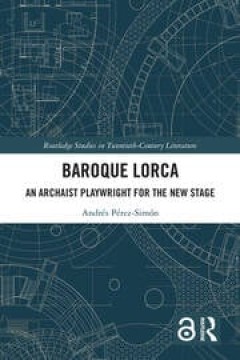
Baroque Lorca : An Archaist Playwright for the New Stage
Baroque Lorca: An Archaist Playwright for the New Stage defines Federico García Lorca’s trajectory in the theater as a lifelong search for an audience. It studies a wide range of dramatic writings that Lorca created for the theater, in direct response to the conditions of his contemporary industry, and situates the theory and praxis of his theatrical reform in dialogue with other modernist r…
- Edition
- -
- ISBN/ISSN
- 9781000766257
- Collation
- 170 halaman
- Series Title
- -
- Call Number
- 700 PER b
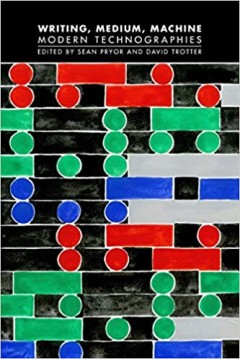
Writing, Medium, Machine : Modern Technographies
Writing, Medium, Machine: Modern Technographies is a collection of thirteen essays by leading scholars which explores the mutual determination of forms of writing and forms of technology in modern literature. The essays unfold from a variety of historical and theoretical perspectives the proposition that literature is not less but more mechanical than other forms of writing: a transfigurative i…
- Edition
- -
- ISBN/ISSN
- 978-1-78542-018-4
- Collation
- -
- Series Title
- Technographies
- Call Number
- 411 WRI
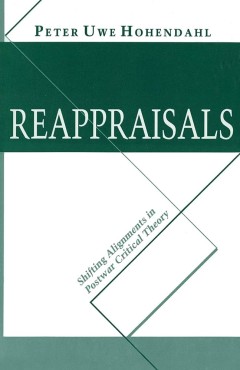
Reappraisals : Shifting Alignments in Postwar Critical Theory
Reappraisals is a provocative account of the development of modern critical theory in Germany and the United States. Focusing on the period since World War II, Peter Uwe Hohendahl explores key debates on the function of critical theory, illuminating the diverse positions and alliances among the participants. Bringing together six essays, as well as new introductory and concluding chapters, Hohe…
- Edition
- -
- ISBN/ISSN
- 9780801497063
- Collation
- -
- Series Title
- -
- Call Number
- 100 HOH r
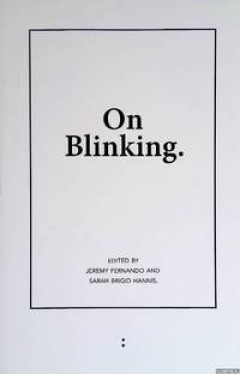
On Blinking
On Blinking opens a dossier on seeing. It looks not only to the epistemological sense of what it means to see or the hermeneutical sense of what is the meaning of that which is seen but attends to various sites of knowledge – photography, literature, and philosophy. And in doing so, it questions the privileging of presence and sight in Western thought. Thus, this book, through the essays – …
- Edition
- -
- ISBN/ISSN
- 9789081709163
- Collation
- 174
- Series Title
- -
- Call Number
- Literary essays
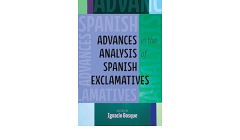
Advances in the Analysis of Spanish Exclamatives
Advances in the Analysis of Spanish Exclamatives is the first book entirely devoted to Spanish exclamatives, a special sentence type often overlooked by contemporary linguists and neglected in standard grammatical descriptions. The seven essays in this volume, each by a leading specialist on the topic, scrutinize the syntax, as well as the semantic and pragmatic aspects, of exclamations on theo…
- Edition
- -
- ISBN/ISSN
- -
- Collation
- -
- Series Title
- -
- Call Number
- 400 ADV

American Creoles : The Francophone Caribbean and the American South
The Francophone Caribbean and the American South are sites born of the plantation, the common matrix for the diverse nations and territories of the circum-Caribbean. This book takes as its premise that the basic configuration of the plantation, in terms of its physical layout and the social relations it created, was largely the same in the Caribbean and the American South. Essays written by lea…
- Edition
- -
- ISBN/ISSN
- 9781846317538
- Collation
- -
- Series Title
- Francophone Postcolonial Studies
- Call Number
- 400 MUN a
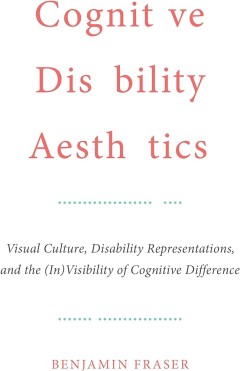
Cognitive Disability Aesthetics : Visual Culture, Disability Representations,…
Cognitive Disability Aesthetics explores the invisibility of cognitive disability in theoretical, historical, social, and cultural contexts. Fraser's cutting edge research and analysis signals a second-wave in disability studies that prioritizes cognition. He expands upon previous research into physical disability representations and focuses on those disabilities that tend to be least visible i…
- Edition
- -
- ISBN/ISSN
- 9781487502331
- Collation
- 288
- Series Title
- Toronto Iberic
- Call Number
- 150 FRA c
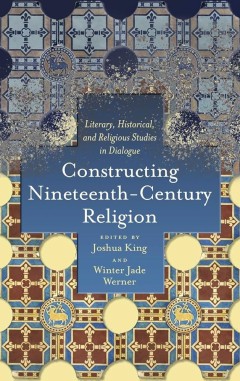
Constructing Nineteenth-Century Religion : Literary, Historical, and Religiou…
“This volume not only brings together an impressive collection of internationally renowned scholars but also offers ambitious and far-reaching conclusions that reassess what ‘religion’ meant in the nineteenth century.” —Jo Carruthers Bringing together scholars from literary, historical, and religious studies, Constructing Nineteenth-Century Religion interrogates the seemingly obvio…
- Edition
- -
- ISBN/ISSN
- 9780814213971
- Collation
- 330
- Series Title
- -
- Call Number
- 200 CON
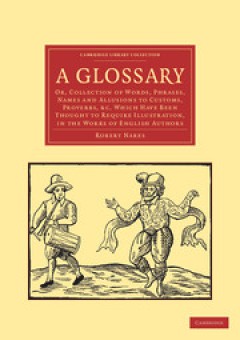
A Glossary Or, Collection of Words, Phrases, Names and Allusions to Customs,…
Originally published in 1822, Robert Nares' glossary of antiquated Elizabethan terms is the result of a personal interest in and love of Elizabethan literature. Nares (1753–1829), well known as a scholar and clergyman, was also a keen philologist and antiquary. This glossary was undertaken in his spare time, and compiled over forty years as he was often occupied with various academic and cler…
- Edition
- -
- ISBN/ISSN
- 9781139093781
- Collation
- -
- Series Title
- Cambridge Library Collection - Literary Studies
- Call Number
- -
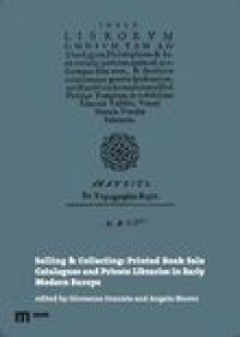
Selling & Collecting : Printed Book Sale Catalogues and Private Libraries in …
Based on the contributions given at a conference held at the University of Cagliari in September 2017, this collection of essays provides an insight into the distribution and acquisition of printed books in the sixteenth and seventeenth centuries. Publishers’ and booksellers’ catalogues are examined as evidence of the advertising and selling techniques used by agents in the book trade, with…
- Edition
- -
- ISBN/ISSN
- 9788860565723
- Collation
- 317 halaman
- Series Title
- -
- Call Number
- 025 SEL
 Computer Science, Information & General Works
Computer Science, Information & General Works  Philosophy & Psychology
Philosophy & Psychology  Religion
Religion  Social Sciences
Social Sciences  Language
Language  Pure Science
Pure Science  Applied Sciences
Applied Sciences  Art & Recreation
Art & Recreation  Literature
Literature  History & Geography
History & Geography